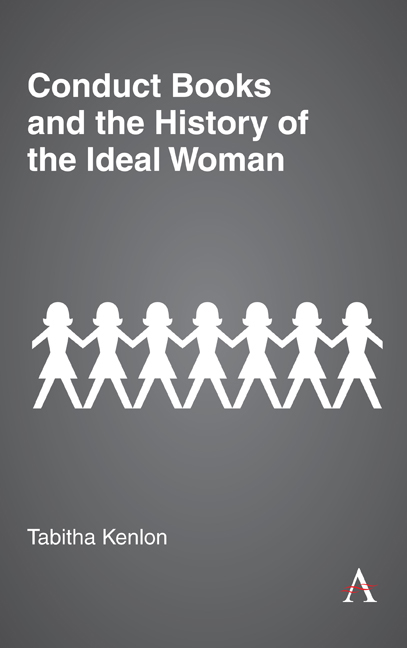Book contents
- Frontmatter
- Contents
- Acknowledgments
- Explanatory Note
- Introduction: Woman as She Should Be
- 1 A Good Woman Is a Godly Woman, Obviously
- 2 Conduct for Those Who Are Not Queen
- 3 Look but Don’t Talk: Reflections of the Ideal
- 4 Playing the Part as Nature Intended
- 5 Victoria’s Angels
- 6 Suffrage, Little Wives and Career Girls
- 7 Feminism Changes Everything, Right? Right??
- Coda: An Ideal End
- References
- Index
6 - Suffrage, Little Wives and Career Girls
Published online by Cambridge University Press: 30 April 2020
- Frontmatter
- Contents
- Acknowledgments
- Explanatory Note
- Introduction: Woman as She Should Be
- 1 A Good Woman Is a Godly Woman, Obviously
- 2 Conduct for Those Who Are Not Queen
- 3 Look but Don’t Talk: Reflections of the Ideal
- 4 Playing the Part as Nature Intended
- 5 Victoria’s Angels
- 6 Suffrage, Little Wives and Career Girls
- 7 Feminism Changes Everything, Right? Right??
- Coda: An Ideal End
- References
- Index
Summary
“I’m No Suburban Bridge Player— I’m a Newspaperman!”
The film industry provided another medium for debating the female ideal. Many movies of the 1930s feature strong- willed working women who did their best to keep up with and at times outsmart their male counterparts. His Girl Friday (1940), the screwball comedy from which the above quote is taken, sets a love triangle between Walter, an editor (Cary Grant), Hildy, his ex- wife and former employee (Rosalind Russell) and Bruce, her new fiancé (Ralph Bellamy) against a backdrop of government corruption and murder. Equally up for scru¬tiny are the criminal justice system and the sexual hierarchy. Hildy's declaration that she is “a newspaperman” is a denial of the womanly role Bruce would demand from her as his wife, which requires her to quit her job and move to the suburbs. Other male characters also refer to her as a newspaperman— apparently the highest praise they can bestow. Needless to say, Hildy does not marry Bruce. She keeps her job and remarries Walter, thus reconciling, for the time, her masculine career with her feminine destiny to become a wife. In the real world, and in conduct manuals, the resolution was more complicated.
Votes for Women
The suffrage movement of the early twentieth century argued primarily for women's right to vote. But active participation in government and lawmaking is both a literal and symbolic gesture. Feminist historians point out that suffragists in the late nineteenth and early twentieth centuries wanted the vote for specific reasons, because “[t] he ultimate source and embodiment of patri¬archal power was seen to lie in political expression, or law, and the vote was perceived as a strategic tool for changing law […] the demand for women's enfranchisement was a direct strike at the very seat and symbolic locus of patri¬archal power.” Enfranchisement could mean the ability not only to react to a male agenda but also to introduce and advance issues of particular concern to women, or as Wilma Meikle explained in 1916, to “win a political power which would secure, if not economic equality between the sexes, at least eco¬nomic independence for women […] [T]his independence would establish in law and custom that sexual equality which Nature ordained.”
- Type
- Chapter
- Information
- Conduct Books and the History of the Ideal Woman , pp. 133 - 158Publisher: Anthem PressPrint publication year: 2020



